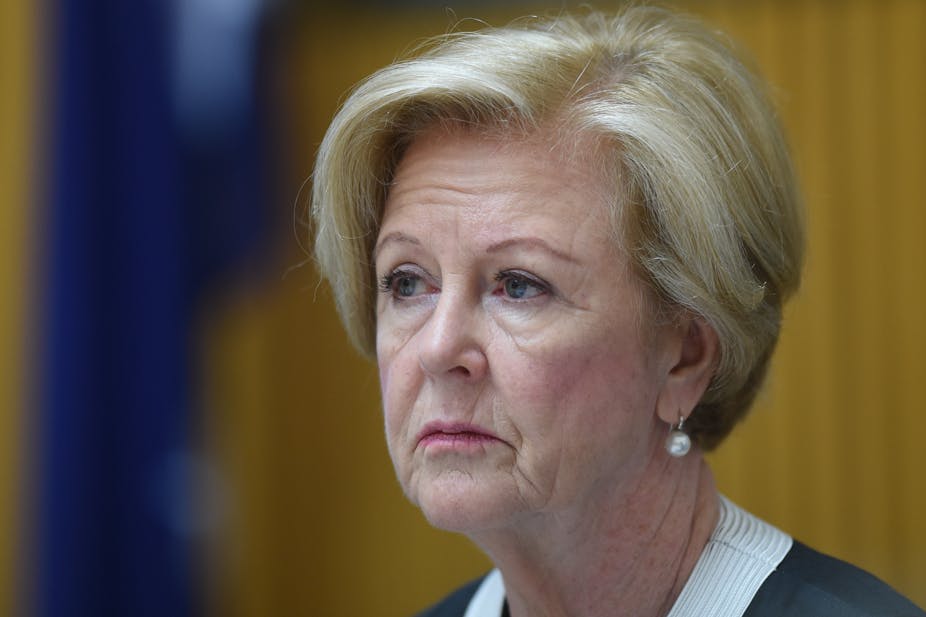In his incautious remarks about the Australian Human Rights Commission’s (AHRC) report into children in detention, Prime Minister Tony Abbott has shown a disregard for basic institutions of democracy that should worry all Australians.
Last week, Abbott decried the report as a “blatantly partisan politicised exercise” and said the AHRC “ought to be ashamed of itself”.
Undeniably, Australians hold a wide range of views about the treatment of asylum seekers. Many such views run deeply contrary to the positions advocated by human rights organisations. This fact has been deeply distressing for many other Australians who believe that we have moral and legal obligations to respect the rights of those seeking asylum.
However, what transcends such disagreements is a shared commitment among all Australians to our democratic system and with this to the institutions and practices that constitute and sustain a healthy democracy. These include universal suffrage, respect for the rule of law and the separation of powers.
Even if 99% of people voted for a single political representative, who then exercised sole authority, this would not be a democracy. It would be a popular dictatorship.
Democracies have institutional checks on power
To avoid the perils that we know flow from the concentration of power, we distribute power across different bodies. Modern well-functioning democracies depend upon the proper operation of independent statutory authorities. These agencies, such as the AHRC, the Australian Electoral Commission and the Office of the Australian Information Commissioner (OAIC), are established by laws passed by our elected representatives to ensure that all arms of government respect the full range of laws.
So long as these bodies do not exceed their legislative authority, it is the job of the other arms of government, and particularly the executive, to respect their processes. This does not mean elected governments have to agree with their findings or implement their recommendations.
The AHRC, for example, has powers to make recommendations but not to enforce these. That remains the mandate of parliament. This distribution of power between the statutory authority, which is charged with making assessments of what the law requires, and the parliament, with the mandate of passing laws or changing policy, is a central part of the apparatus of democracy.
A well-functioning democracy also requires that the office holders of the different authorities observe basic protocols of respect for the respective roles and powers. Above all, it is incumbent upon the prime minister, as the highest office holder in our system, to demonstrate such respect.

When Abbott fails to do so, he does not simply express disagreement with the views expressed by others; he gives the nation a signal that the institutions of democracy are dispensable. Perhaps even more gravely, he signals his preference for the rule of men over the rule of law, for it is by law that our statutory authorities were established and by law that they operate and make their determinations.
The AHRC is not the only statutory authority that has come under attack from this government. The OAIC – responsible for assessing freedom of information claims – would have been abolished had the Senate not refused to pass the legislation. As it is, like the AHRC, it faces the alternative of a more covert demise through being starved of the funds it needs to operate.
Democratic pillars should be above politics
At some time, every Australian, be they a parliamentarian or an ordinary citizen, will disagree with the decisions of the parliament, the judiciary or one or other of our statutory authorities. This has certainly been the case for governments from both sides of politics when it comes to the AHRC over the last 15 years.
Accepting such disagreement is what it is to live in a diverse and complex society. People have different interests and views. However, we all understand that these instances of discomfort or conflict are the foreseeable consequence of living in a democracy where everyone gets a say and where power is divided between differently constituted institutions.
Irrespective of our political ideologies, we share the view that, even with all of its disadvantages, a democratic system is the form of government that best promotes the well-being and protects the rights and interests of the citizenry.
If we are to continue to reap the benefits of this system, we all need to keep in mind the value of democracy. When our highest political representative moves to undermine the legally constituted organs of democracy, all Australians have something to worry about.
Respect for independent statutory bodies is not a matter for party politics or personality differences. Democracy is not a partisan issue.

